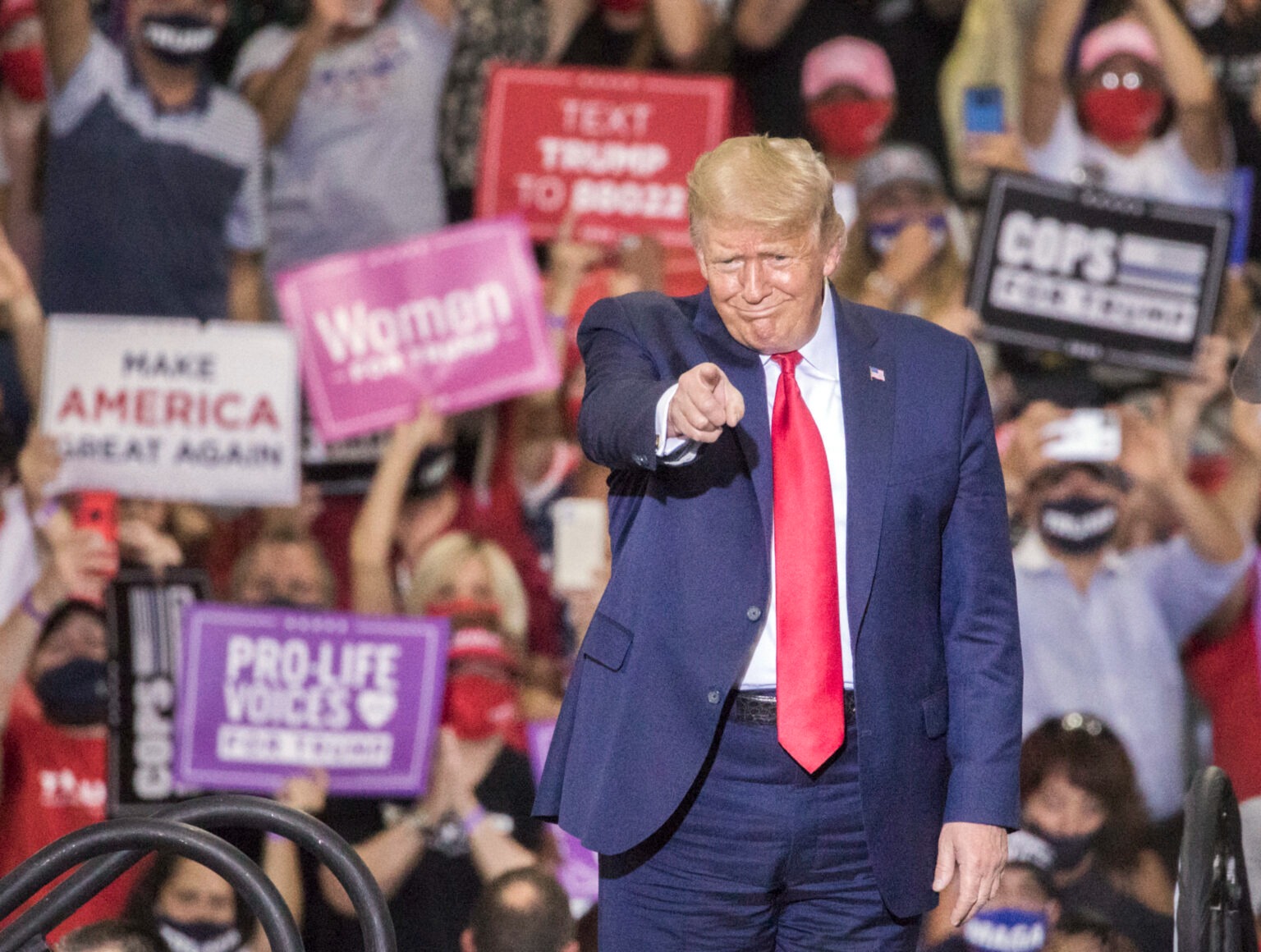Former President Trump finds himself embroiled in a heated dispute with Shawn Fain, the head of the United Auto Workers (UAW) union, following the union’s endorsement of President Biden.
The UAW officially backed Biden for reelection at its conference in Washington, D.C., last week after expressing reservations about the administration’s focus on electric vehicles.
During the endorsement, UAW President Shawn Fain criticized Trump, labeling him as a “scab” and asserting that Trump represents billionaires, not the interests of American workers. Fain contrasted Biden’s support for the American worker with Trump’s alleged blaming of the same.

Tensions Between Trump and UAW (Credits: Al Jazeera)
In response, Trump, feeling provoked, retaliated by disparaging Fain as a “dope” and a “stiff.” He accused Fain of aligning with Biden’s electric vehicle vision, claiming it hands the auto industry to China.
Trump urged the removal of Fain and advocated for support in the upcoming election to bring the automobile industry back to the United States.
The feud intensified as Trump labeled the UAW a “hopeless case” in an interview with Fox Business, asserting he never engaged with the union.
This clash occurs as both Biden and Trump gear up for the November general election, with Trump being the leading contender for the Republican nomination. Trump’s team believes that swaying some of Biden’s support among organized labor could impact the closely anticipated election.
Trump’s previous loss of union members by 8 percentage points in 2016, growing to 14 percentage points in 2020, is a statistic his team aims to reverse.
Winning back Michigan, a crucial state for the U.S. auto industry, is a priority for Trump. Despite Michigan’s shift back to the Democratic camp in 2020, Trump aims to regain the state’s support.
The UAW’s endorsement is crucial in this context, and despite Trump’s efforts to court union members, he faces resistance from UAW leadership.
The strained relationship stems from Trump’s critique of UAW leadership, claiming rank-and-file members were being betrayed during last year’s endorsement-seeking period.
In contrast, Biden’s campaign seeks to capitalize on his support for autoworkers and investments during his administration. Biden’s participation in the UAW strike against major automakers and his historic march on a picket line earned him favor among UAW members.
Trump’s recent focus on the Teamsters union, meeting with its president Sean O’Brien, indicates a broader strategy to gain union endorsements.
However, Fain strongly dismisses any possibility of Trump receiving a union endorsement, emphasizing that Trump stands against the principles of organized labor and the working class.
Amid this feud, Fain emerges as a pivotal figure in Biden’s outreach strategy for UAW workers and the broader working-class demographic. As both candidates vie for the union vote, the clash with Fain exemplifies the intricate dynamics at play in the lead-up to the election.























